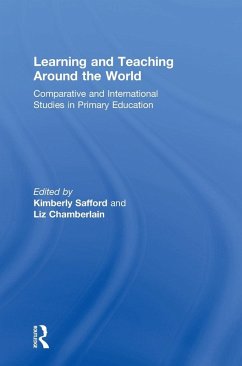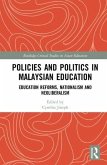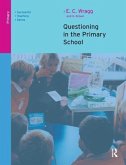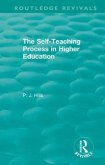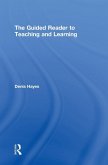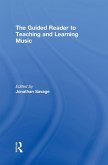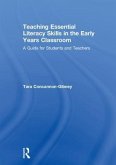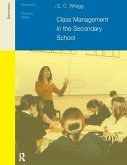Learning and Teaching Around the World
Comparative and International Studies in Primary Education
Herausgeber: Safford, Kimberly; Chamberlain, Liz
Learning and Teaching Around the World
Comparative and International Studies in Primary Education
Herausgeber: Safford, Kimberly; Chamberlain, Liz
- Gebundenes Buch
- Merkliste
- Auf die Merkliste
- Bewerten Bewerten
- Teilen
- Produkt teilen
- Produkterinnerung
- Produkterinnerung
Learning and Teaching Around the World is a wide-ranging introduction to diverse experiences, practices and developments in global primary education. It explores different contexts for children's learning and addresses wider issues such as the rise of refugee learners and large multi-grade classes.
Andere Kunden interessierten sich auch für
![Policies and Politics in Malaysian Education Policies and Politics in Malaysian Education]() Policies and Politics in Malaysian Education202,99 €
Policies and Politics in Malaysian Education202,99 €![Questioning in the Primary School Questioning in the Primary School]() E C WraggQuestioning in the Primary School181,99 €
E C WraggQuestioning in the Primary School181,99 €![The Self-Teaching Process in Higher Education The Self-Teaching Process in Higher Education]() Pj HillsThe Self-Teaching Process in Higher Education143,99 €
Pj HillsThe Self-Teaching Process in Higher Education143,99 €![The Guided Reader to Teaching and Learning The Guided Reader to Teaching and Learning]() Denis HayesThe Guided Reader to Teaching and Learning204,99 €
Denis HayesThe Guided Reader to Teaching and Learning204,99 €![The Guided Reader to Teaching and Learning Music The Guided Reader to Teaching and Learning Music]() The Guided Reader to Teaching and Learning Music206,99 €
The Guided Reader to Teaching and Learning Music206,99 €![Teaching Essential Literacy Skills in the Early Years Classroom Teaching Essential Literacy Skills in the Early Years Classroom]() Tara Concannon-GibneyTeaching Essential Literacy Skills in the Early Years Classroom206,99 €
Tara Concannon-GibneyTeaching Essential Literacy Skills in the Early Years Classroom206,99 €![Class Management in the Secondary School Class Management in the Secondary School]() WraggClass Management in the Secondary School159,99 €
WraggClass Management in the Secondary School159,99 €-
-
-
Learning and Teaching Around the World is a wide-ranging introduction to diverse experiences, practices and developments in global primary education. It explores different contexts for children's learning and addresses wider issues such as the rise of refugee learners and large multi-grade classes.
Hinweis: Dieser Artikel kann nur an eine deutsche Lieferadresse ausgeliefert werden.
Hinweis: Dieser Artikel kann nur an eine deutsche Lieferadresse ausgeliefert werden.
Produktdetails
- Produktdetails
- Verlag: Taylor & Francis Ltd (Sales)
- Seitenzahl: 234
- Erscheinungstermin: 16. Juli 2018
- Englisch
- Abmessung: 244mm x 170mm x 16mm
- Gewicht: 599g
- ISBN-13: 9781138485204
- ISBN-10: 1138485209
- Artikelnr.: 53459614
- Herstellerkennzeichnung
- Libri GmbH
- Europaallee 1
- 36244 Bad Hersfeld
- gpsr@libri.de
- Verlag: Taylor & Francis Ltd (Sales)
- Seitenzahl: 234
- Erscheinungstermin: 16. Juli 2018
- Englisch
- Abmessung: 244mm x 170mm x 16mm
- Gewicht: 599g
- ISBN-13: 9781138485204
- ISBN-10: 1138485209
- Artikelnr.: 53459614
- Herstellerkennzeichnung
- Libri GmbH
- Europaallee 1
- 36244 Bad Hersfeld
- gpsr@libri.de
Kimberly Safford is a Senior Lecturer in Primary Education at The Open University, UK. She contributes to the university's International Teacher Education and Development programmes in India and Africa, authoring Open Educational Resources collaboratively with academics and practitioners. She also writes OU courses and OER for UK teachers, classroom support staff, and for the wide range of education staff in the Third and Cultural Sectors. Liz Chamberlain is a Senior Lecturer in Primary Education at The Open University, UK. She is a member of the International Teacher, Education and Development team and contributes to in-country fieldwork in Uganda and Zimbabwe. Liz authors the module Comparative and International Studies in Primary Education and is co-author of an Early Reading Badged Online Course for teachers in Africa and a MOOC, making teacher education relevant for 21st century Africa.
Introduction: 'Close up' and 'wide angle' lenses on primary education
Section 1 Pedagogy and provision 1. Primary education: why and how to
compare? 2. Refugee children's experiences of education in countries of
first asylum 3. Multigrade pedagogies: Africa's response to Education for
All 4. Thinking about a community of provision 5. Shadow education and its
implications for social justice Section 2 Languages and learning 6. Primary
school medium of instruction policies in Ghana and India 7. English
language as an inclusion tool: the case of Syrian refugees in UK primary
schools 8. Unpacking teachers' language ideologies in schools in Alsace,
France 9. Negotiating worlds: a young Mayan child developing literacy at
home and at school in Mexico 10. What languages do you speak? A reflexive
account of research with multilingual pupils Section 3 Inclusion and
exclusion 11. Indigenous ways with literacies in an Australian primary
school 12. Young British Muslims explore their experiences of primary
school and 'othering' 13. Is this the right school for my gender
nonconforming child 14. The challenges of realising inclusive education in
South Africa 15. The contradictions within universal education: why
'education for all' is still exclusionary Section 4 Teacher education and
development 16. Defining 'teacher professionalism' from different
perspectives 17.Developing inclusive learning environments in rural
classrooms in India 18. Early childhood pre-service teachers engage in
collegial dialogue 19. Teacher education in Sub-Saharan Africa and in one
school in Kenya: macro challenges and micro changes 20. Learning Assistants
in Sierra Leone: community support for future teachers Section 5 Local,
national and global intersections 21. Is the grass always greener? The
effect of the PISA results on education debates in Sweden and Germany 22.
Creativy and education in the European Union and the United Kingdom 23. New
teachers and corporal punishment in Ghanaian primary schools 24. The
Gambia: the intersection of the global and the local in a small developing
country 25. Globalising education and the shaping of global childhoods
Section 1 Pedagogy and provision 1. Primary education: why and how to
compare? 2. Refugee children's experiences of education in countries of
first asylum 3. Multigrade pedagogies: Africa's response to Education for
All 4. Thinking about a community of provision 5. Shadow education and its
implications for social justice Section 2 Languages and learning 6. Primary
school medium of instruction policies in Ghana and India 7. English
language as an inclusion tool: the case of Syrian refugees in UK primary
schools 8. Unpacking teachers' language ideologies in schools in Alsace,
France 9. Negotiating worlds: a young Mayan child developing literacy at
home and at school in Mexico 10. What languages do you speak? A reflexive
account of research with multilingual pupils Section 3 Inclusion and
exclusion 11. Indigenous ways with literacies in an Australian primary
school 12. Young British Muslims explore their experiences of primary
school and 'othering' 13. Is this the right school for my gender
nonconforming child 14. The challenges of realising inclusive education in
South Africa 15. The contradictions within universal education: why
'education for all' is still exclusionary Section 4 Teacher education and
development 16. Defining 'teacher professionalism' from different
perspectives 17.Developing inclusive learning environments in rural
classrooms in India 18. Early childhood pre-service teachers engage in
collegial dialogue 19. Teacher education in Sub-Saharan Africa and in one
school in Kenya: macro challenges and micro changes 20. Learning Assistants
in Sierra Leone: community support for future teachers Section 5 Local,
national and global intersections 21. Is the grass always greener? The
effect of the PISA results on education debates in Sweden and Germany 22.
Creativy and education in the European Union and the United Kingdom 23. New
teachers and corporal punishment in Ghanaian primary schools 24. The
Gambia: the intersection of the global and the local in a small developing
country 25. Globalising education and the shaping of global childhoods
Introduction: 'Close up' and 'wide angle' lenses on primary education
Section 1 Pedagogy and provision 1. Primary education: why and how to
compare? 2. Refugee children's experiences of education in countries of
first asylum 3. Multigrade pedagogies: Africa's response to Education for
All 4. Thinking about a community of provision 5. Shadow education and its
implications for social justice Section 2 Languages and learning 6. Primary
school medium of instruction policies in Ghana and India 7. English
language as an inclusion tool: the case of Syrian refugees in UK primary
schools 8. Unpacking teachers' language ideologies in schools in Alsace,
France 9. Negotiating worlds: a young Mayan child developing literacy at
home and at school in Mexico 10. What languages do you speak? A reflexive
account of research with multilingual pupils Section 3 Inclusion and
exclusion 11. Indigenous ways with literacies in an Australian primary
school 12. Young British Muslims explore their experiences of primary
school and 'othering' 13. Is this the right school for my gender
nonconforming child 14. The challenges of realising inclusive education in
South Africa 15. The contradictions within universal education: why
'education for all' is still exclusionary Section 4 Teacher education and
development 16. Defining 'teacher professionalism' from different
perspectives 17.Developing inclusive learning environments in rural
classrooms in India 18. Early childhood pre-service teachers engage in
collegial dialogue 19. Teacher education in Sub-Saharan Africa and in one
school in Kenya: macro challenges and micro changes 20. Learning Assistants
in Sierra Leone: community support for future teachers Section 5 Local,
national and global intersections 21. Is the grass always greener? The
effect of the PISA results on education debates in Sweden and Germany 22.
Creativy and education in the European Union and the United Kingdom 23. New
teachers and corporal punishment in Ghanaian primary schools 24. The
Gambia: the intersection of the global and the local in a small developing
country 25. Globalising education and the shaping of global childhoods
Section 1 Pedagogy and provision 1. Primary education: why and how to
compare? 2. Refugee children's experiences of education in countries of
first asylum 3. Multigrade pedagogies: Africa's response to Education for
All 4. Thinking about a community of provision 5. Shadow education and its
implications for social justice Section 2 Languages and learning 6. Primary
school medium of instruction policies in Ghana and India 7. English
language as an inclusion tool: the case of Syrian refugees in UK primary
schools 8. Unpacking teachers' language ideologies in schools in Alsace,
France 9. Negotiating worlds: a young Mayan child developing literacy at
home and at school in Mexico 10. What languages do you speak? A reflexive
account of research with multilingual pupils Section 3 Inclusion and
exclusion 11. Indigenous ways with literacies in an Australian primary
school 12. Young British Muslims explore their experiences of primary
school and 'othering' 13. Is this the right school for my gender
nonconforming child 14. The challenges of realising inclusive education in
South Africa 15. The contradictions within universal education: why
'education for all' is still exclusionary Section 4 Teacher education and
development 16. Defining 'teacher professionalism' from different
perspectives 17.Developing inclusive learning environments in rural
classrooms in India 18. Early childhood pre-service teachers engage in
collegial dialogue 19. Teacher education in Sub-Saharan Africa and in one
school in Kenya: macro challenges and micro changes 20. Learning Assistants
in Sierra Leone: community support for future teachers Section 5 Local,
national and global intersections 21. Is the grass always greener? The
effect of the PISA results on education debates in Sweden and Germany 22.
Creativy and education in the European Union and the United Kingdom 23. New
teachers and corporal punishment in Ghanaian primary schools 24. The
Gambia: the intersection of the global and the local in a small developing
country 25. Globalising education and the shaping of global childhoods

